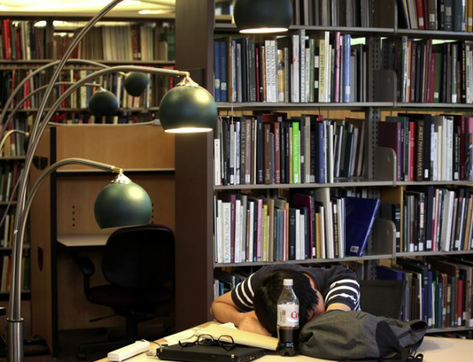![As students head back to school, questions arise as to whether the school day should start later. [Associated Press]](http://www.jstudentboard.com/reporter/wp-content/uploads/2015/08/Screen-Shot-2015-08-26-at-4.38.10-PM-300x230.png)
The Centers for Disease Control and Prevention (CDC) report that only 17.7 percent of public schools in the United States start at the CDC’s recommended time of 8:30 am or later. Studies have shown that a lack of a good night’s sleep can negatively affect a student’s performance and behavior.
Yet changing school hours is not easy.
In Maryland, for example, superintendent Joshua Starr moved to have high schools start 50 minutes later to give students more sleep. However, not only did the policy fail to achieve consensus and approval among the parent community, but the change would also cost $21 million annually.
Moreover, a delay in school start times could cause family conflicts with regards to jobs and sports. Parents typically arrange their schedules at work to be able to pick up their children from school, and a shift in those regularities would cause inconvenience. This change in policy would furthermore cost up to $2000 per student to change bus schedules, according to the Brookings Institute.
The CDC recommends an average of eight hours or more of sleep for every person; however, it reports that only a third of high school students in the United States get these eight hours or more of sleep on school nights. With an often rigorous school schedule early the next day, this sleeping pattern can often cause sleep deprivation.
Justin Cho, a rising senior at Flintridge Preparatory School, can attest to the lack of sleep he attributes to academic stress. In an interview with JSR, Cho stated, “I stay up a lot doing homework and studying, and having to wake up at 7 am to get to school every day can get tiring.”
When asked whether starting school an hour later would help to alleviate the stress, Cho wholeheartedly said that it would.
“Personally, it’s hard to function on 5-6 hours of sleep, so an extra hour or so of sleep would really benefit me, and I’m sure others would agree with me,” he said.
On the other side of the spectrum, one student interviewed for this article believes that the current system has its merits.
“As much as I hate it, I think having school start at 8 am instead of later actually helps me stay productive,” Erica Cho, a rising senior at Crescenta Valley High School (CVHS), told JSR.
To offer more accommodations to students’ class schedules, some schools have offered zero period classes, which start an hour before school normally begins. Students sacrifice an hour of sleep, but benefit from the opportunity to take the desired class.
Erica Cho continued, “I think [a zero period] is fine too since it’s optional and up to the person to be willing to give up an extra hour of sleep for a class they signed up for.”
In an interview with JSR, David Lim, a senior at CVHS, agreed, “Zero period is a great opportunity for students to manage their times better. In order to wake up earlier, students will be more inclined to sleep earlier… [By doing so,] they will naturally get to sleep more.”
Depending on the student’s class schedule, taking zero period classes can result in ending school an hour earlier. The incentive of heading home an hour earlier than the normal time often convinces students to take a zero period.
“Ending earlier in the day seems like a great idea to me. I can have more time during the day to do what I desire,” Lim said.
But even without the change in school hours, high school students often lack the recommended amount of sleep due to stress and uncontrollable factors. This aspect of the issue was emphasized and a main focus of research done by CDC epidemiologist Anne Wheaton.
In an interview with TODAY, Wheaton stated, “In puberty, biological rhythms commonly shift so that adolescents become sleepy later at night and need to sleep later in the morning.”
“It’s really hard to sleep earlier than midnight because either I’m texting friends or because it’s impossible for my body to go to sleep,” Justin Cho admitted.
Some students prefer to wake up earlier, while others dread the early hour. Whether the lack of sleep is due to academic stress or biological rhythms, the solution to drowsiness may not lie in the change to bell schedules, but can very well exist in students’ lifestyles.

